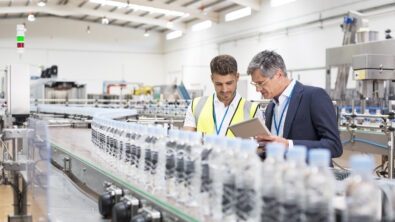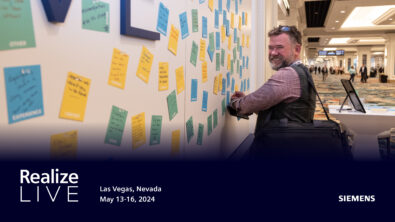How the industrial IoT enables IT/OT convergence

It used to be that information technology (IT) and operational technology (OT) worked fine as separate entities. However, in an increasingly digital world, in order for companies to have a successful digitalization journey and move into the future, IT and OT need to work together. But connecting two siloed environments is no easy task.
Silvio Rasek, Head of Marketing, Factory Automation and Smart Data at Siemens Digital Industries Software recently spoke with Futurum about IT/OT Convergence Enabled by Industrial IoT and the Siemens Xcelerator Platform. Check out the webcast, or continue reading for a quick overview.
First, let’s back up and further define IT and OT in a manufacturing setting. To keep it simple: OT is the physical machines in a factory and all the assets and workers under that departmental umbrella. IT is the technology, systems and software side of the business – and all of the developers and data scientists involved with that work. So we have the physical machines and the technology and data. The shop floor and the back office.
The trends leading to the need of IT/OT convergence
Before we get into how to successfully integrate your IT and OT systems, let’s look at why it’s necessary. We’re currently seeing more need for individualization in manufacturing companies, everything from seasonal packaging to unique formulas. We’re also seeing a growing need for sustainability efforts – and a growing amount of companies joining in lowering their energy usage, limit their carbon footprint and reduce waste. These asks may seem very differing, but they all call for new ways of doing things not previously needed from companies. They all require more collaboration between IT and OT. But this comes with its own challenges
The challenges of IT/OT convergence
One challenge companies have when connecting IT and OT is they’re using brownfield equipment. What does this mean? Having existing equipment that you’re highly dependent on. Legacy hardware. Legacy applications. Older machines and assets are more difficult to connect to newer technologies, as are a collection of machines and assets from different brands or types – all with different protocols.
Related to this, companies also have issues when they don’t have a unified or standardized interface. This makes it hard to customize your software between all your different devices. But there is a way to connect your brownfield equipment AND create standardization, and it can be done by leveraging IT/OT convergence and the industrial Internet of Things (IoT).
The IT/OT solution is in the IoT
The industrial IoT has an array of solutions that can be taken advantage of once your systems are all onboard – from predictive maintenance to energy management. But the first step is to connect your devices and systems – both IT and OT. This can be done with Siemens industrial IoT solution as a service.
Siemens industrial IoT solution works on brownfield and greenfield equipment, and a combination of both! With out-of-the-box solutions, you can get you assets connected and started collecting data. Once you have the data on your assets, you can turn it into insights and make impactful business decisions that affect IT and OT and help them work together in harmony. Interested in learning more about IoT solutions and which ones could be right for you? Check out our e-book “Top IoT use cases and examples.”
Siemens industrial IoT solution is part of Siemens Xcelerator open digital business platform which enables customers to accelerate their digital transformation easier, faster and at scale. Now, these cloud-based solutions are available via Siemens SaaS solutions to make digital transformation happen faster. Siemens Xcelerator brings all your solutions under one roof, making everything easy, open and integrated.
Want to learn more? Check out the webcast for Futurum, IT/OT Convergence Enabled by Industrial IoT and the Siemens Xcelerator Platform. Ready to begin your digitalization journey? Learn more about Siemens industrial IoT solution start for free.
More industrial IoT posts you may be interested in:


